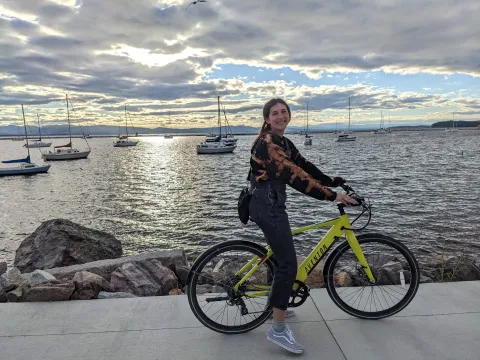
August 6, 2024
SCARP faculty member Holly Caggiano is excited to share her paper, newly published in Nature Energy, with co-authors Sara Constantino, Chris Greig, and Elke Weber.
Some key takeaways:
- Direct benefits like job creation and community ownership increase public support for large-scale energy projects.
- Support for energy projects is similar across Democrats and Republicans in the general public, suggesting opportunities for bipartisan efforts.
- Elected officials underestimate how much their constituents support projects that generate solar energy and create permanent jobs.
- Open dialogue between community members and local elected officials about prioritized project benefits may help advance energy transitions.
“The local official is so important to the energy transition,” said Caggiano, now an assistant professor in climate justice and environmental planning at the University of British Columbia. “State and national governments might be setting climate and energy targets, but most project-specific decisions are made at the local level.”
About Holly Caggiano

Dr. Caggiano is our Assistant Professor specialising in Climate Justice and Environmental Planning.
Caggiano’s research explores social dimensions of the renewable energy transition in the US and Canada. She is interested in how diverse stakeholder groups form coalitions to advocate for environmental change. This work connects patterns across decision-making scales, exploring the ways individual decision-making influences collective action and how collective action disrupts existing relations of power.
Drawing from her interdisciplinary social science background, Caggiano’s work critically evaluates both top-down and bottom-up approaches that aim to advance equitable climate change mitigation & adaptation efforts.